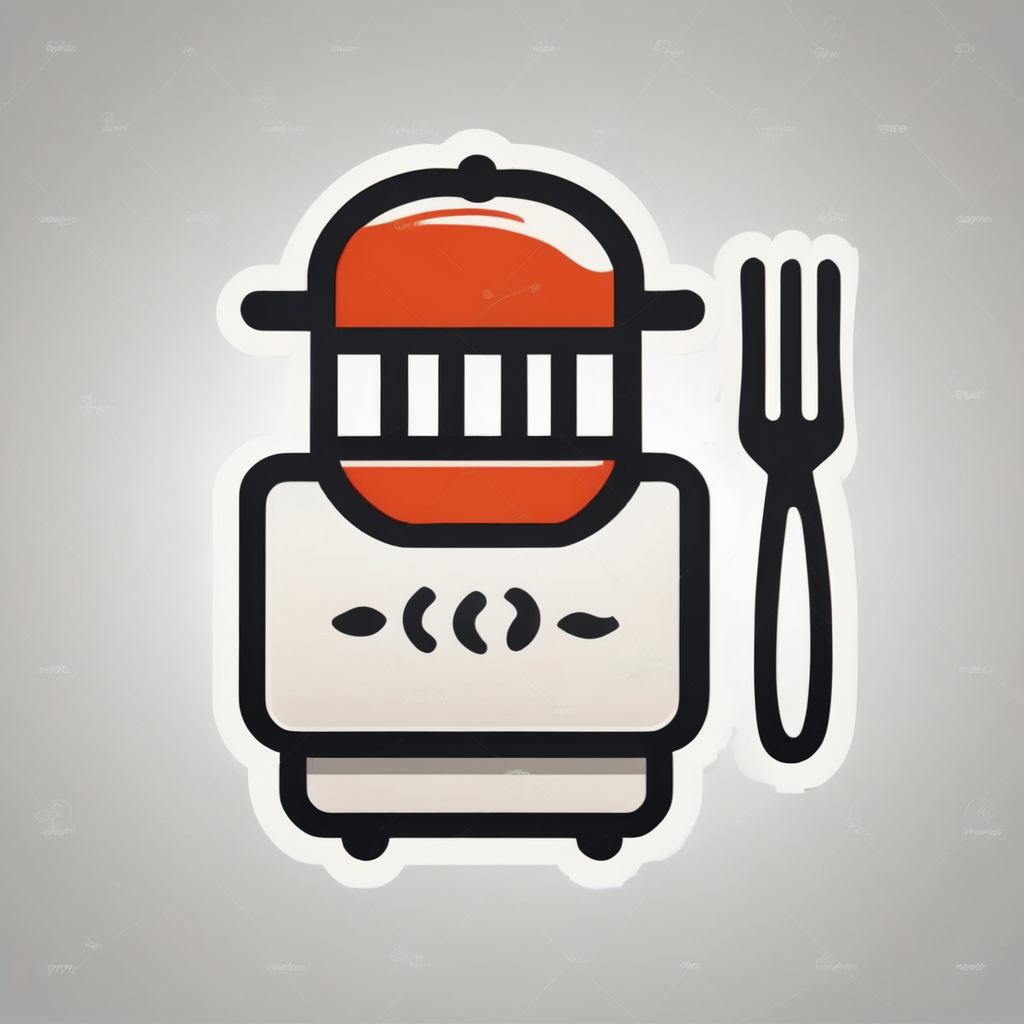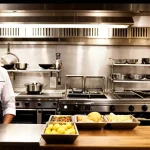Latest Automation Technologies in UK Restaurant Kitchens
A glimpse into the innovation reshaping dining atmospheres.
Restaurant kitchen automation in UK restaurants is rapidly evolving with the introduction of robotic arms and automated cooking lines. These advanced cooking robots can perform repetitive tasks such as flipping burgers, stirring sauces, and managing frying stations with remarkable precision and speed. By integrating these machines, UK restaurants reduce human error and improve consistency in meal preparation, ensuring customers enjoy reliable quality every time.
In the same genre : Exploring the distinctive hurdles confronting uk kitchen bars: a comprehensive insight
Another breakthrough is the emergence of AI-powered inventory and order management systems. These systems automatically track ingredient levels, predict usage patterns, and trigger timely orders. This reduces waste and optimizes stock management, which is vital in busy commercial kitchens. Smart kitchen equipment embedded with sensors can communicate with these AI systems, enabling seamless coordination between cooking robots and inventory controls.
Several UK restaurants have embraced this kitchen automation trend. They report enhanced kitchen efficiency and shorter wait times, elevating the overall dining experience. Incorporating these technologies is not just about keeping pace with technological progress but gaining a competitive edge through streamlined operations and consistent product quality. The future of restaurant kitchen automation looks bright and is poised to transform how UK restaurants serve their customers.
Have you seen this : What strategies do uk kitchen restaurants use to deliver a flawless customer experience?
Impact of Artificial Intelligence on Kitchen Efficiency
Artificial intelligence kitchens are transforming how food establishments operate by significantly enhancing kitchen efficiency. AI-driven food preparation systems ensure consistent quality control by monitoring cooking times, temperatures, and ingredient measurements with precision unattainable through manual methods. This technology reduces waste and improves dish uniformity, key factors in maintaining customer satisfaction.
In addition, AI restaurant technology leverages predictive analytics to dynamically adjust staffing and scheduling. Algorithms analyze historical sales, holidays, and weather patterns to optimize employee shifts, preventing both overstaffing and understaffing. This approach enhances labor productivity and lowers operational costs.
Real-world data from UK restaurant trends showcases tangible efficiency gains. Facilities integrating AI solutions report faster order processing and improved inventory management, directly contributing to reduced wait times and higher turnover rates. These advancements support restaurants in maintaining competitive edges in fast-paced environments without sacrificing quality.
Overall, the integration of artificial intelligence kitchens represents a pivotal shift toward smarter, more responsive culinary operations. By automating complex tasks and providing actionable insights, AI technology supports restaurant owners in delivering superior service while streamlining internal workflows.
Advancements in Smart Kitchen Devices and Connectivity
The rise of smart kitchen devices has transformed how modern kitchens operate, especially with the integration of kitchen IoT technologies. These connected appliances enable real-time monitoring, offering invaluable insight into cooking processes and inventory management. For instance, sensors can track temperature fluctuations or equipment status, ensuring food safety and reducing waste.
In the context of restaurant technology UK, smart appliances contribute to significant energy savings. Automated systems adjust power usage based on demand, optimizing energy management and promoting sustainability. This not only lowers utility bills but also aligns with growing environmental commitments.
Cloud-based platforms play a pivotal role in linking front-of-house operations with kitchen workflow. Such connected appliances facilitate seamless communication between waitstaff and chefs, reducing errors and improving service speed. This synergy enhances overall efficiency, making it easier for restaurants to handle peak hours and maintain quality.
With smart kitchen devices becoming more accessible, restaurants and homes alike benefit from smarter, more sustainable, and connected cooking environments. These advancements mark a significant step towards the future of food preparation and service.
Case Studies: UK Restaurants Pioneering High-Tech Kitchens
Explore how UK restaurant case studies demonstrate transformative effects of technology adoption in kitchens. Innovative kitchens are reshaping culinary experiences across the country, with several standout examples showcasing tangible benefits.
Robotic kitchens, especially in London fine dining, exemplify precision and efficiency. These establishments utilize automated cooking stations and robotic arms to maintain consistency while reducing prep time by up to 30%. Such technology also enhances hygiene, critical in busy restaurant environments. This approach not only elevates customer satisfaction but also optimizes staff allocation.
Sustainable fast food chains in the UK are adopting smart appliances to reduce energy consumption and minimize waste. Sensors monitor cooking processes, adjusting power usage dynamically, saving significant utility costs. This mix of sustainability and tech supports both environmental goals and profit margins, proving lucrative in competitive markets.
Large UK restaurant groups employ advanced data analytics to track inventory, customer preferences, and staff performance. These insights drive smarter decision-making, such as dynamic menu adjustments based on trending dishes. The ability to leverage big data optimizes operations across multiple locations efficiently.
From these case studies, industry leaders face challenges including high initial investment and workforce training but gain improved workflow, reduced errors, and increased customer loyalty. Practical adoption of culinary tech is becoming a defining trend in the UK hospitality sector.
Benefits and Challenges of Cutting-Edge Kitchen Technologies
Kitchen technology benefits are transforming restaurant efficiency by speeding up food preparation and enhancing precision. Automated appliances and smart devices ensure consistent food quality, reducing human error and waste. For instance, technologies like programmable ovens and sensors allow chefs to maintain perfect cooking conditions, improving customer satisfaction.
Sustainability in kitchens is another critical advantage. Modern equipment often consumes less energy and water, aligning with growing environmental concerns in the UK hospitality sector. This shift supports operational sustainability goals, cutting costs and minimizing the carbon footprint. Furthermore, waste reduction technologies help restaurants manage leftovers better, tying back to both ecological and financial benefits.
However, tech challenges UK kitchens face include high initial investments and ongoing costs. Staff training is essential to maximize these new tools’ potential; without it, efficiency gains may not materialize. Resistance to change and integration difficulties can delay adoption, especially for smaller establishments. Despite these hurdles, the long-term benefits often outweigh the initial struggles, making cutting-edge kitchen technology a wise choice for forward-thinking restaurants.
Expert Insights and Future Trends in UK Restaurant Kitchens
Leading expert opinions from UK chefs and restaurateurs emphasize the growing importance of integrating cutting-edge technology. They foresee a kitchen ecosystem where automation and AI reduce manual tasks and improve efficiency. One key insight highlights that smart appliances and IoT devices will become standard tools, enabling real-time monitoring and precise control over food preparation.
In terms of the future of kitchen tech, industry forecasts predict increased adoption of AI-powered systems for inventory management and predictive maintenance. Robotics will assist in repetitive tasks such as chopping or plating, allowing staff to focus on creativity and customer experience. Such technology will not only boost productivity but also support sustainability efforts within kitchen operations.
Experts from UK hospitality technology suppliers stress that seamless integration across devices and software platforms will be crucial. They expect that kitchens will operate as connected hubs, sharing data across areas like supply chain and front-of-house management to streamline operations comprehensively.
Preparing for these advancements means investing in scalable and adaptable solutions, training staff to work alongside technology, and fostering a mindset open to continuous innovation. This proactive approach will position UK restaurant kitchens to thrive in an evolving, tech-driven hospitality landscape.


